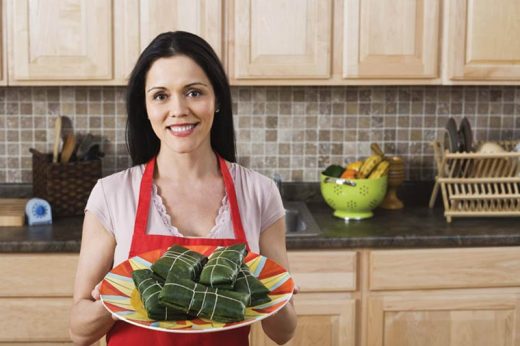
Last week, the Riverside County Department of Environmental Health started accepting applications for home-based food business permits. These are formally called Microenterprise Home Kitchen Operations.
An MHKO is a food facility a resident operates in a private home. Food is stored, handled, and prepared for and may be served to consumers either directly or through delivery.
Food must be prepared, cooked and served on the same day with a maximum of 30 meals per day, or a total of 60 meals per week. And the total annual sales are limited to $50,000.
During the first hour the department was open, three potential business owners came in for applications, making them the first three in the county and the state to apply, according to the department’s press release.
Homeowners must go through the county’s DEH to get approval and permits prior to starting their business. The MHKO operator must pass an approved and accredited food safety manager certification exam.
Any person involved in an MHKO must have a Riverside County Food Handler Certification. And only one employee is allowed, except for family or household members.
Home kitchens will have to be inspected prior to being allowed to open for business. Inspections can be scheduled with Environmental Health specialists. After opening, yearly inspections will be required with permit renewals or if any complaints are received from the public.
Home cooks are required to have food safety training and certifications. But permitted home-based food businesses will not be required to display letter grades as required by restaurants.
Inspection reports will be available online and consumers are advised to ask about a current Environmental Health permit prior to purchasing any food.
Information on how to obtain a Riverside County home food permit may be found at rivcoeh.org/Programs/homebased_kitchen_operations or on Facebook at www.facebook.com/RiversideCountyEH/ or by calling 888-722-4234.
The MHKO permits were authorized with the passage of Assembly Bill 626 and Gov. Jerry Brown signed it into law in September 2018. The law became effective Jan. 1, 2019.
Also, there are cottage food operation permits, which are limited to low-risk foods, such as baked goods, without cream, custard or meat fillings, or breads, biscuits, churros, cookies, pastries and tortillas. A complete list of permitted low-risk foods is available at www.cdph.ca.gov/Programs/CEH/DFDCS/CDPH Document Library/FDB/FoodSafetyProgram/CottageFood/Approved Cottage Food List for Web July 1 2018.pdf
Cottage Food permits have been available since 2013. They were authorized with the enactment of Assembly Bill 1616 in September 2012.
The bill allows individuals to prepare and/or package certain non-potentially hazardous foods in private-home kitchens referred to as “cottage food operations.” The CFO permits also have a gross annual sales limit of $50,000.
All CFOs have to meet specified requirements pursuant to the California Health and Safety Code. The foods must be on the state-approved food list. Operators must complete a food processor training course within three months of registering. The food preparation must be sanitary. Operators must comply with state and federal label requirements.










